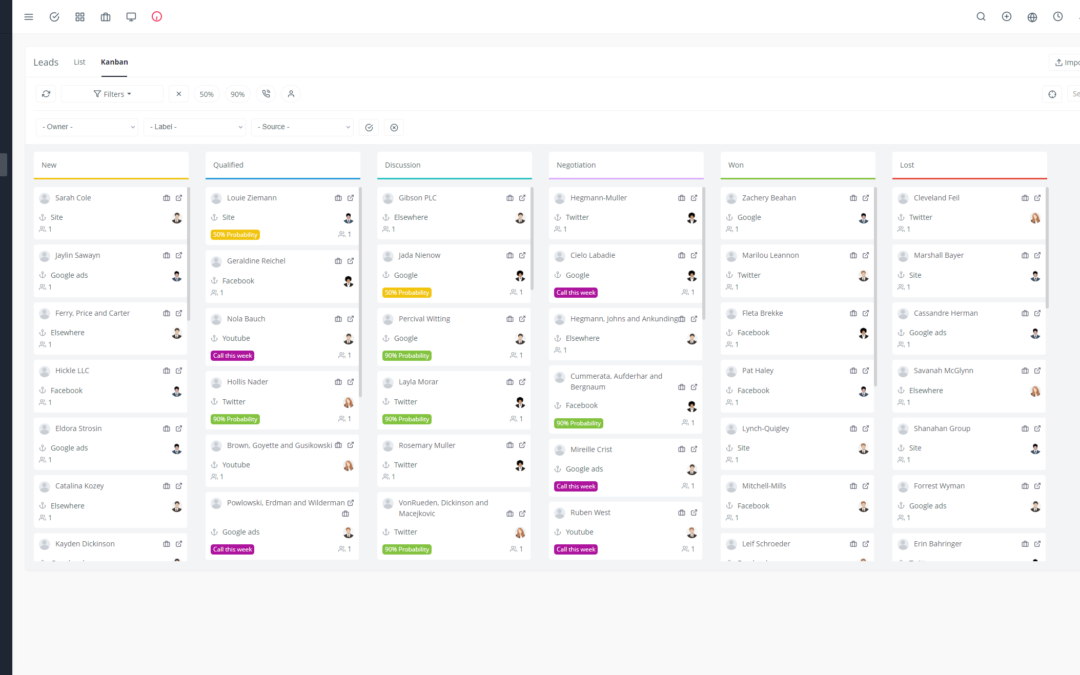Yoneos CRM is a powerful solution that lets you automate your business processes and manage your customer relationships. Its API provides you with flexible and programmable access to your data, opening up possibilities for integrating and extending your CRM system. However, using an API comes with responsibilities regarding security and optimization.
This article guides you through the best practices to implement to use the Yoneos CRM API securely and efficiently, maximizing your system’s return on investment.
1. Introduction to the Yoneos CRM API 📑
The Yoneos CRM API allows you to interact with your CRM system through HTTP requests. It exposes a variety of endpoints allowing you to create, read, update, and delete data such as customers, projects, invoices, etc.
2. Secure Authentication and Authorization 🔒
Before you can use the Yoneos CRM API, you need to authenticate. This involves providing valid credentials to prove your identity. The API typically uses an authentication system based on access tokens.
3. Using Access Tokens 🔑
An access token is a unique string of characters that allows your identity and permissions to be validated with the API. It is typically generated during login and must be used for each request.
4. Managing API Keys 🗝️
The Yoneos CRM API may also use API keys for authentication. An API key is a unique string of characters that you can use to identify your application and authorize it to access the API. It is crucial to store your API keys securely and not share them with third parties.
5. Role-Based Access Control 👥
The Yoneos CRM API may use role-based access control (RBAC) to restrict the actions users can perform. This means that users with different roles will have different access levels to the API.
6. Validating Input Data 🛡️
Before processing data received by the API, it is essential to validate its validity. This helps prevent injection attacks and ensures data integrity.
7. Preventing SQL Injections 🚫
SQL injection is a common vulnerability that allows attackers to execute arbitrary SQL code on your server. The Yoneos CRM API should include protections against SQL injections to ensure the security of your database.
8. Protecting Against XSS Attacks 🚫
XSS (Cross-Site Scripting) attacks allow attackers to inject malicious code into your website. The Yoneos CRM API should include protections against XSS attacks to prevent the spread of malicious content.
9. Handling Errors and Exceptions ⚠️
The Yoneos CRM API should handle errors and exceptions robustly. This includes providing meaningful error codes and clear error messages to help developers troubleshoot problems.
10. Logging API Calls 📝
Logging API calls is essential to track API usage, identify trends, and debug problems. The Yoneos CRM API should include logging features that record details of API calls such as timestamp, IP address, user, etc.
11. Optimizing Request Performance 🚀
API requests should be optimized to ensure optimal performance. This includes minimizing the number of requests, using pagination, and compressing data.
12. Managing Pagination 📑
Pagination is a technique for retrieving large datasets in batches instead of all at once. This reduces the amount of data transmitted and improves API performance.
13. Using Appropriate HTTP Methods 🌐
Use the appropriate HTTP methods for each type of request. For example, use `GET` to retrieve data, `POST` to create data, `PUT` to update data, and `DELETE` to delete data.
14. Data Compression 📦
Data compression can reduce the size of requests and responses, improving performance and reducing bandwidth costs.
15. Caching Data 🗄️
Caching can be used to store frequently accessed data, which reduces the number of requests to the API and improves performance.
16. Error Recovery Strategies 🤕
Implement error recovery strategies to handle temporary errors and service outages. For example, you can retry failed requests after a specified delay or use a proxy server to redirect requests to another server if necessary.
17. Managing Dependencies 🔗
The Yoneos CRM API may depend on other services and libraries. It’s important to manage dependencies appropriately to ensure the API’s stability and security.
18. Compliance with Security Policies 👮♂️
Ensure your use of the Yoneos CRM API complies with your company’s security policies and applicable regulations.
19. API Documentation 📚
API documentation is essential for developers using it. It should provide a comprehensive description of the API, endpoints, parameters, and responses.
20. Updating the API and Dependencies 🔄
The Yoneos CRM API and its dependencies are regularly updated to fix bugs, improve performance, and add new features. It’s important to update the API and its dependencies regularly to ensure security and stability.
By implementing these best practices, you can ensure secure and efficient use of the Yoneos CRM API, maximizing the benefits of your CRM system and minimizing security risks. 🎉

